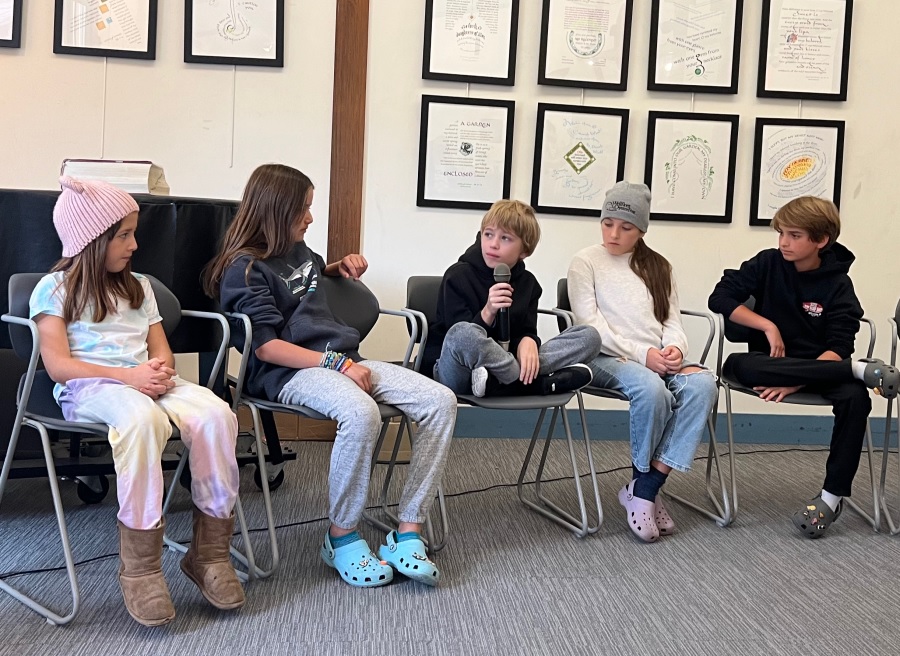WELLFLEET — As bivalve fans kick back beers on Main Street during this town’s biggest party, there is a quiet, more dignified corner some prefer. That is the Wellfleet Public Library, where on Oct. 14 the 18th annual OysterFest spelling bee was held. The event is simple: a row of chairs; an audience full of parents and friends of spellers; a judge, Ed Miller, editor of the Provincetown Independent, standing at the podium; and the Random House dictionary, a hulking tome, at the ready should any speller challenge the judge’s spelling.

First up, the Littlenecks, ages 12 and under. Most of the five contestants’ feet did not reach the ground as they sat on their chairs. The youngest, seven-year-old Vivian Mara, was the first out when the silent “h” went missing from her spelling of “whale.” By the final round, two members of the Traverso family squared off: Siena, age 10, of Brewster, and Alessandro, age 12, of Newton. Alessandro placed second, correctly spelling “aquarium,” “nori,” and “amphibian.” The word “flotsam” tripped him up. Siena took home the top prize, carried by a streak of correct spelling from “mola” and “anatomy” all the way to her winning word, “migratory.” In third place, Jaxson Menard of North Scituate, R.I. was dragged down by “undertow” after successfully spelling “gaff,” which was followed by his large sigh of relief.
In the 13-and-up category, the Quahogs, nine spellers ranged from high school students to gray-haired adults. There were murmurs in the crowd as Marty Magida took a seat on the stage. Magida, a self-described “long-term speller,” declared that he was taking bets.
In the final round two Wellfleeters faced off: a seasoned Malcolm Pollack against high schooler Alyia Vasquez. Pollack won, spelling “xanthophyll,” “phosphorescence,” and “ganoid” with signature speed and ease. Vasquez placed second, spelling “promiscuous” and “maxillary” but missing “noisome.” Coming in third, Victoria Huh of Braintree was stopped by “lancelet” — which, if you didn’t know, is a “marine organism with a long thin body, usually found buried in sand,” described as “fish-like” but not, in fact, a fish.



